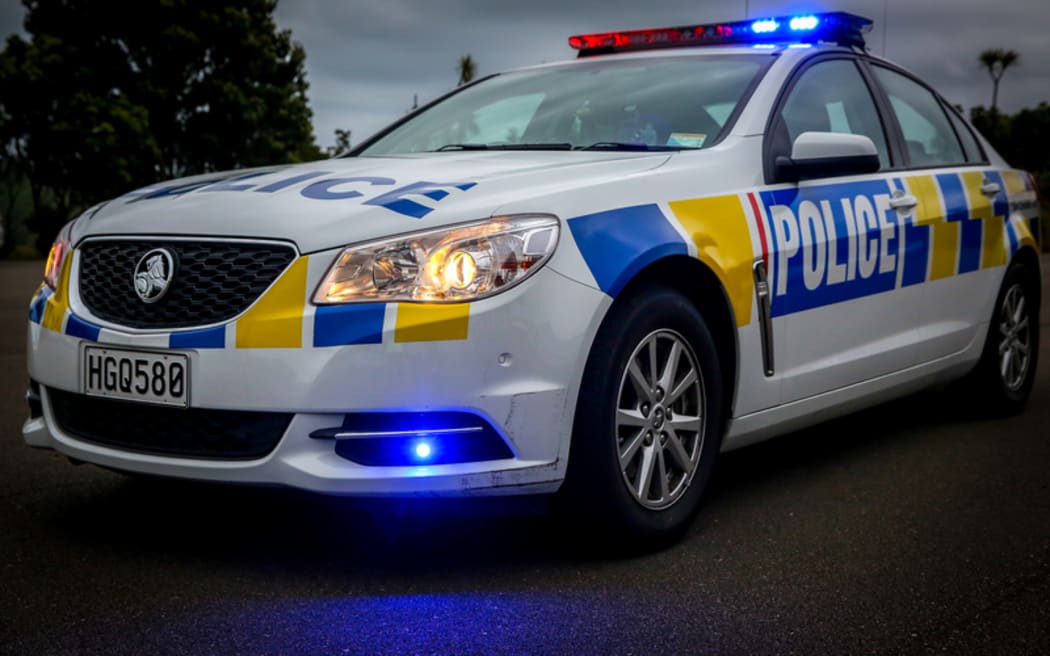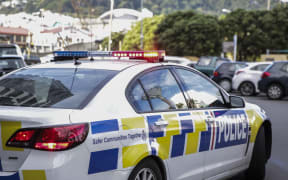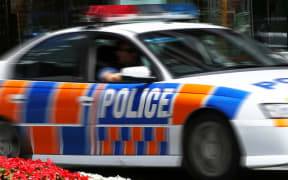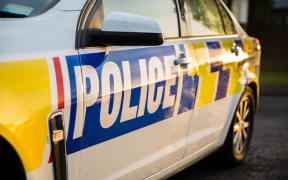Police figures show Māori make up more than half of people warned or charged following police pursuits.

Photo: RNZ / Alexander Robertson
And as more Māori die as a result, police pursuits are being called 'Māori death chases'.
In less than four years, police have chased more than 10,000 fleeing cars on our roads.
But when it comes to punishing them - Māori make up 54 percent of those who are warned or charged.
That's despite making up just 15 percent of the population.
It comes as no surprise to former police officer, Hurimoana Dennis.
"Bias within the police, that's well known. It doesn't matter which way you roll the dice, every constable or officer who has the power of arrest, has the power of discretion.
"No one can tell them who to arrest and who not to arrest."
A lawyer, Dr Moana Jackson, is researching the prevalence of Māori involved in police pursuits and why they are being prosecuted more than any other group.
"A number of people actually called it a 'Māori death chase policy'.
"The way in which they arrest Māori, the decision to pursue a Māori, usually young Māori, the police's research itself admits that often those decisions are prompted by what they call unconscious bias."
Unconscious bias, that he said, has had a deathly consequence.
In the last four years nine Māori drivers lost their lives, compared to four European.
Twenty-nine people died in total, but police only record the ethnicity of the driver of the offending vehicle.
Police would not be interviewed and could not offer any reasons why the rates are so disproportionate - apart from saying in a statement Māori drivers who flee from the police are more likely to be on their learner or restricted licences.
But the Police Association is rejecting any suggestion that bias in the police force is a factor in the over-representation of Māori involved in police pursuit chases.
The association's president, Chris Cahill, said there was no evidence bias is a factor.
"These statistics show no evidence of that because clearly they don't demonstrate that one group of fleeing drivers is charged differently than another group of fleeing drivers. And bear in mind that a police officer who initiates a pursuit is very rarely going to know the ethnicity of the driver of that car anyway."
John Tamihere, the chief executive of the Waipareira Trust which works with the Waitakere community, had another explanation.
"You've got the issue that is ethnic profiling. We know statistically when discretions are used by police, Māori don't get the same nod as others."
Māori were four times more likely to receive multiple charges and seven times more likely to be incarcerated, Mr Tamihere said.
He also said other important factors as to why Māori choose to flee police were at play too.
"Māori have a higher prevalence of risk taking activities. That's linked to issues of deprivation, status, poverty, poor skills, therefore, poor choices."
Hurimoana Dennis said some Māori who flee police just make bad decisions, but he said other social issues Māori face should not be ignored.
"We are in the news every night so people build these perceptions as they go and it doesn't mean that there's a whole lot more bad Māori out there doing bad things.
"People of New Zealand need to pay a lot more attention to the social issues that are going on in the country and it just doesn't look like what sits inside their fence."
However, Mr Dennis said there were other factors that came into play when police stopped or pursued young Māori drivers.
"It's a complicated one," he told Morning Report. "It's not just the colour of a person's skin that gets someone's attention, it's driver behaviour or it very well may be the car, it may be stolen," he said.
"Many times you don't actually know who's driving in the car until you actually pull it over..."
Mr Hurimoana said it was an unfortunate fact that many young Māori who attempted to evade police did so because of ''low-level'' misdemeanours, like having outstanding fines or having the wrong class of driver's license.
He praised police initiatives in partnership with iwi designed to resolve problems with eligible participants, including the use of pre-charge warnings.
The schemes offered "good filters", so that "those who need to go the court did so and those who need to be held to account but don't need to deal with the full arm of the law, these facilities are available," he said.
In the last four years 4835 Māori were charged or warned for fleeing the police.
And Moana Jackson said people must remember the human price that has been paid.
"It's too easy to just quote statistics. For every young Māori who dies in a police pursuit, that's a whānau that is affected. I think it's important that we never should lose sight of the basic humanity that's at play."
A review of the police pursuit policy is underway and expected to be released by the end of the year.
Meanwhile, police say they are trying to influence positive change and road safety for Māori by taking a whānau-based approach, and using iwi community panels to repair the harm caused by offending.






